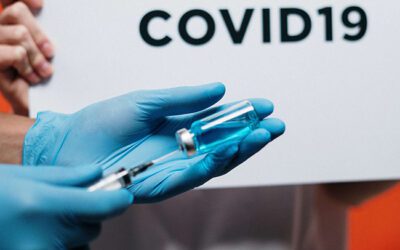For those of you who we speak with in a virtual visit, you can do many things to help your health assessment.
- Blood pressure. If you have a blood pressure cuff, you can be taking your blood pressure at home and have those readings ready to discuss with your physician.
- Blood sugar. If you have diabetes or elevated blood sugar, you can have several blood sugar readings ready to communicate with your physician.
- Be prepared. You can also be ready to answer questions about your general health, possible exposure to the virus, as well as your anxiety and stress levels.
In-Person Office Visits
For patients who do need to be seen in person, we are here for you. There are many conditions that cannot be managed over the phone, and we are in the clinic and ready to help. We have masks and gloves and are sterilizing our rooms and surfaces with great care.
Common Questions About COVID-19 Testing in Portland Metro Area
We have received many questions about the novel coronavirus outbreak. We’re sharing current knowledge about testing for COVID-19.
Are tests for the COVID-19 virus available?
Many companies and labs are working on new tests and we are watching these developments closely. Right now, there are several laboratory tests that can identify the novel coronavirus. State and local public health departments have received tests from the CDC. Medical providers are primarily getting tests developed by commercial manufacturers.
Testing for the COVID-19 virus for the general public remains challenging in the Portland Metropolitan Area. There is a shortage of the resources needed for testing – test-taking supplies, lab resources, etc. We are hopeful testing supplies and resources will become more readily available in the next few weeks. There will be testing resources coming both from medical systems as well as private industry.
We are very concerned about the lack of testing and we are keeping our attention on multiple sources for daily updates.
Who is being tested and why?
The CDC testing priorities include the following:
Priority #1 is to ensure that hospitalized patients have optimal care and reduce the transmission of hospital acquired infections and maintain the integrity of the healthcare system. Testing is prioritized to hospitalized patients and symptomatic healthcare workers.
Priority #2 is to ensure that those at risk for the highest risk of complications are quickly identified and appropriately cared for. Testing under priority #2 is reserved for:
- Patients in long-term care facilities with symptoms
- Patients 65 years of age and older with symptoms
- Patients with underlying conditions with symptoms
- First responders with symptoms
Priority #3 is to provide testing – as resources allow – for community individuals where there is rapidly increasing spread to make sure that essential workers are tested and cared for. Testing under priority #3 is reserved for:
- Healthcare workers and first responders
- Individuals with mild symptoms in communities experiencing high COVID-19 hospitalizations
- Critical infrastructure workers with symptoms
How is testing done?
To obtain a sample for viral testing, a swab of secretions from the nasal passages or throat need to be taken. This can be done by a fully protected healthcare worker in an office, drive up testing site, or by more invasive procedures in the hospital.
This sample has to be refrigerated and sent to the lab where the secretions are tested for presence of the virus. In addition to the above priorities from the CDC for who gets tested, testing is also contingent upon availability of testing supplies and laboratory capacity.
In addition to testing patients for the presence of the virus, we are hopeful that there will soon be a widespread test for antibodies so that we can see who has already had exposure.
The major hospital systems in Oregon and the Oregon Health Authority are all working hard on access to testing. We are keeping on top of the multiple daily updates from these entities. We will let you know any new information we obtain about testing for the novel coronavirus.
This is a challenging time for us all. We anticipate the restrictions regarding social distancing will go one for longer than was initially forecast. This practice could be the one thing that makes the most difference in the health of Oregonians and our medical system’s ability to handle the many critically ill patients that may need care. We appreciate your adherence to social distancing guidelines – you are making a difference.
We are here for you at AIM both for your medical concerns as well as your mental health. Please do not hesitate to contact us at any time. We are here to help.



